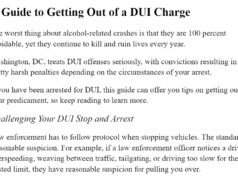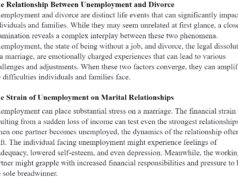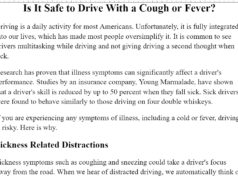SPONSORED CONTENT
American employers reported approximately 2.1 million work-related injuries in 2020, a significant drop from the previous year’s 2.7 million incidents. In most cases, these workplace injuries resulted in anything from a few bumps and bruises to catastrophic injuries that alter a person’s course of life by leaving them with permanent disabilities.
All workers that suffer injuries at the workplace are entitled to compensation with very few exemptions. This means that the employer must have some workers’ insurance coverage. Those without it may have to pay for employee damages out-of-pocket.
Often, workers’ compensation insurance takes a no-fault approach. An employee is eligible for compensation for damages even when the injury is not caused by another person or doesn’t have an element of negligence. However, the workplace accident must have happened within the course and scope of their job.
Understanding Permanent Disability
A permanent disability is any condition that limits your ability to earn a living after attaining your maximum medical improvement (MMI). There are two major types of permanent disabilities; permanent partial disability and permanent total disability.
Partial permanent disability is the type of disability that robs you of your ability to perform at full capacity. This disability can include things like losing one limb or severed fingers. On the other hand, total permanent disability is any condition that renders you unable to resume work ever in the future.
Compensation for Permanent Disability
An injury cannot be classified as a permanent disability unless a doctor determines that a claimant has reached their MMI. Before then, the claimant can only collect disability benefits temporarily. Once the doctor determines that a victim has attained their MMI, they then assign the victim a disability rating to determine the value of the benefits they can recover.
A person with a permanent total disability will have a 100 percent disability rating, while a partial permanent disability is given a rating of between 1 and 99 percent based on their limitations.
Victims that suffer permanent total disability are entitled to a weekly payment of two-thirds of what they used to make before their injury. An employee will also be entitled to a pension after attaining their retirement age. A worker that suffers partial permanent disability may only recover damages to the extent of their disability. Different states may take different approaches to damage settlement, so you may want to talk to your injury attorney.
Workers’ Comp Good and Bad Side
There is a good and a bad side to workers’ compensation insurance. The good part is that it is easier to navigate than other injury claims. The bad side is you cannot recover non-economic damages such as pain and suffering.
However, your lawyer can help you explore other avenues of recovering pains and suffering if evidence proves that the employer intentionally caused the accident or exhibited gross negligence. Under such circumstances, it is possible to recover punitive damages. The court often grants these damages under rare circumstances to punish the defendant for gross negligence and deter others from engaging in the same conduct.
Get a Lawyer
While workers’ compensation is more straightforward than other injury claims, it is not a walkover. “Insurers will still want to lower your claim, especially because permanent disability claims involve a large payout,” says injury lawyer Jan Dils of Jan Dils Attorneys at Law.
Also, the disability classification and rating process can be pretty technical. You may need somebody to look out for your rights. Therefore, it is essential to get a lawyer when navigating any catastrophic injury claim. If your injuries are nothing more than bruises and scrapes, you may not need one.









![[UPDATED 1/29/26] Audio: Sen. Tim Kaine Talks to Blue Virginia About His “Five-Point Plan” to Fight Trump’s Orban-Like Assault on US Democracy; Civil Disobedience a la MLK Jr.; Trump’s Bogus “Energy Emergency”; the Crucial Importance of the 2025 VA Elections; etc.](https://bluevirginia.us/wp-content/uploads/2025/02/kaineinterview2-100x75.jpg)

